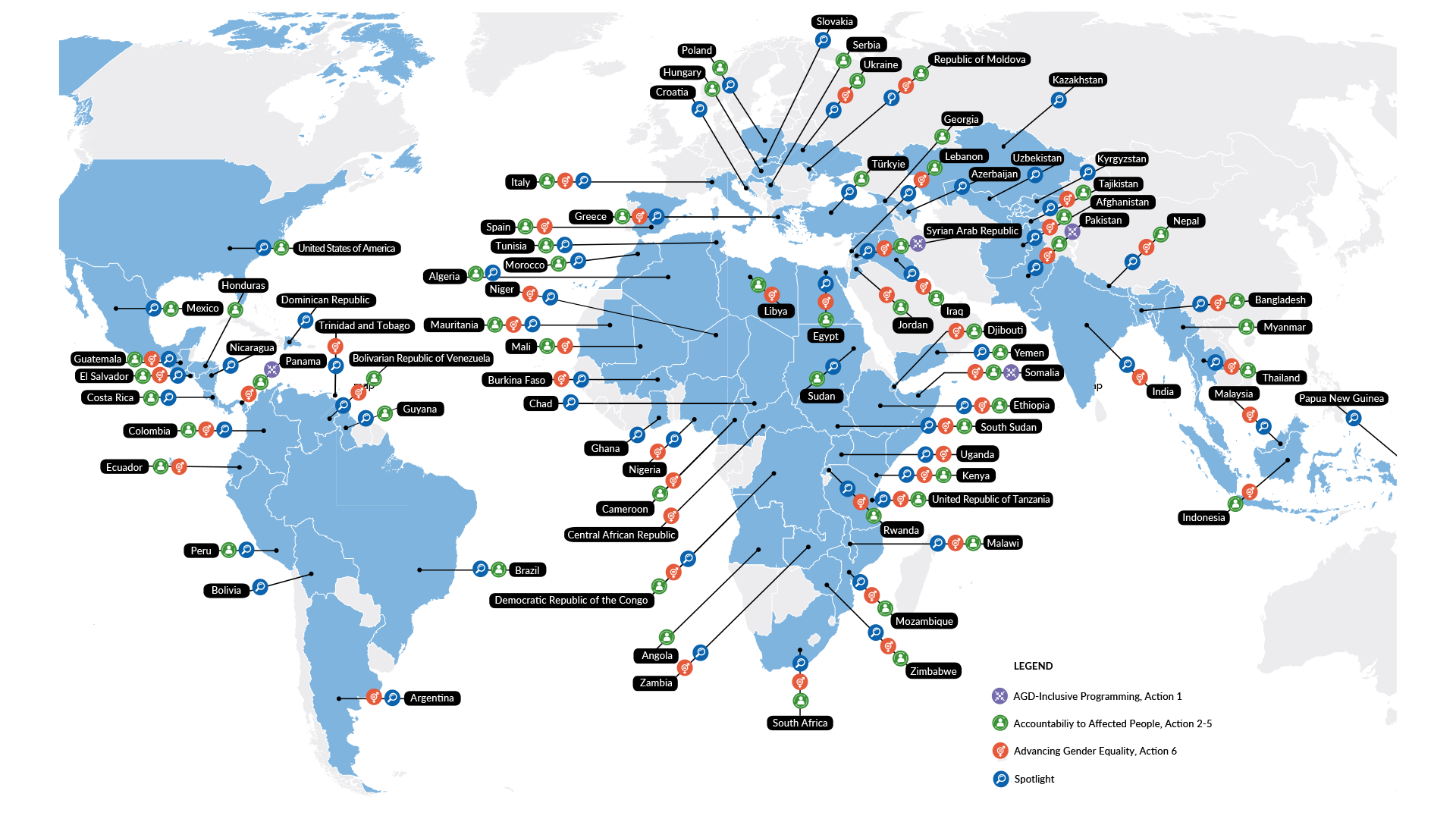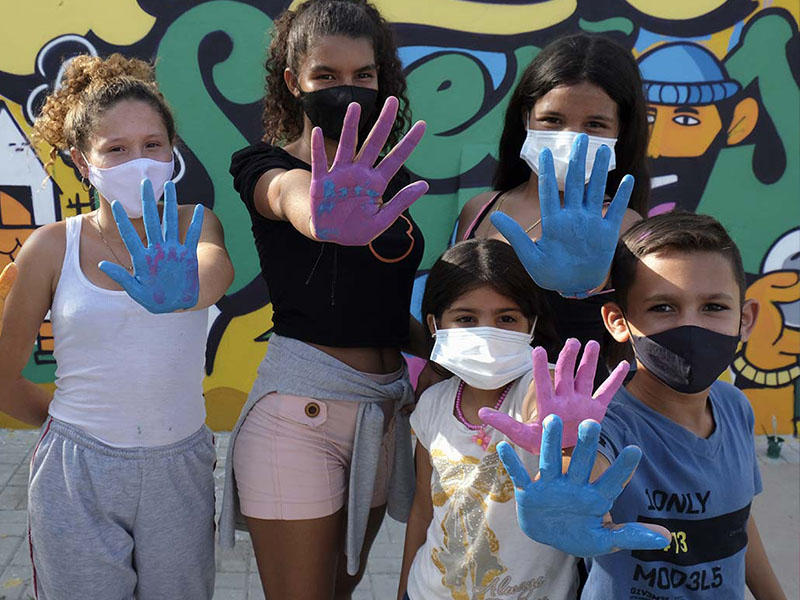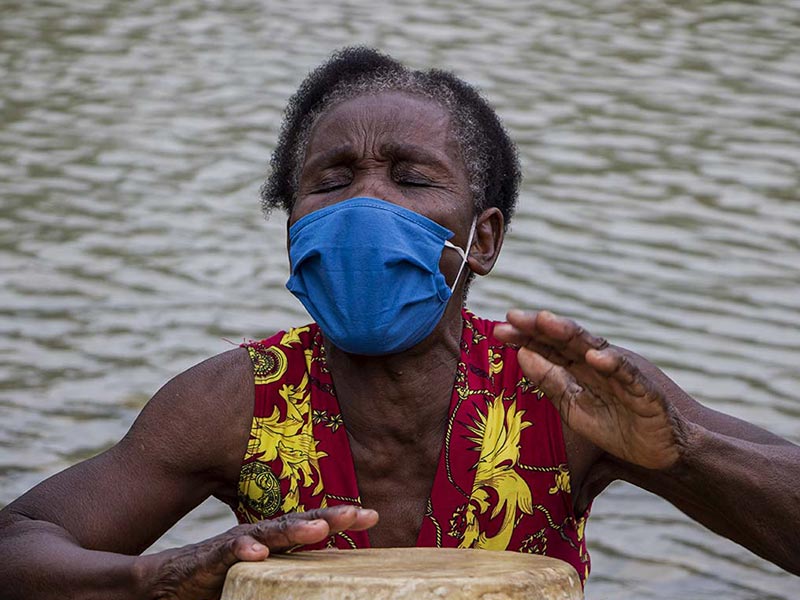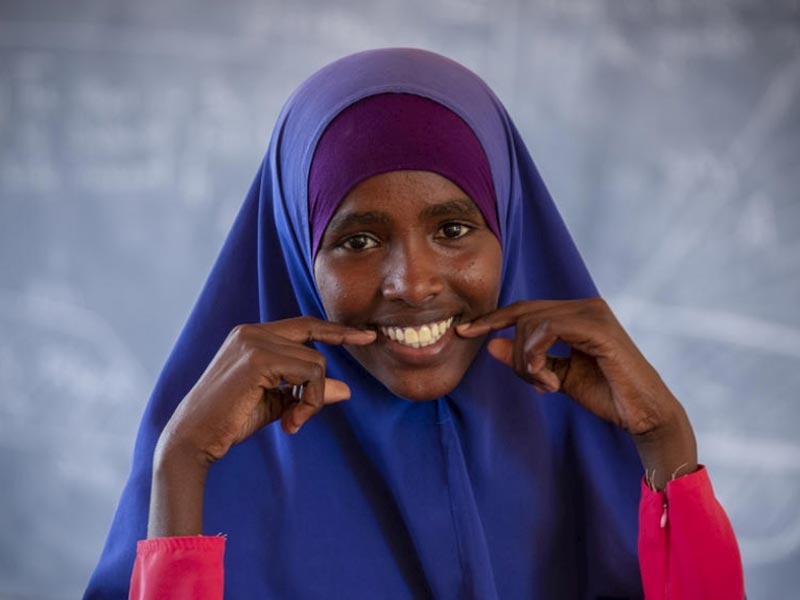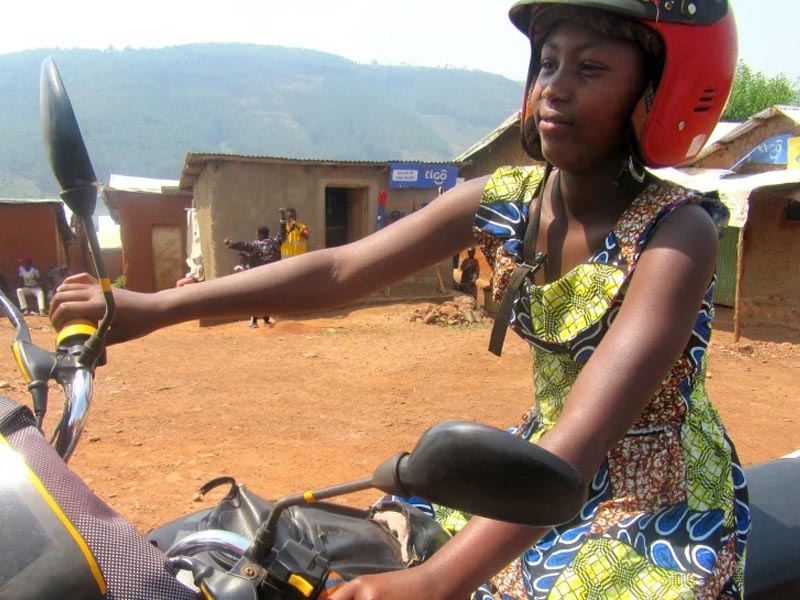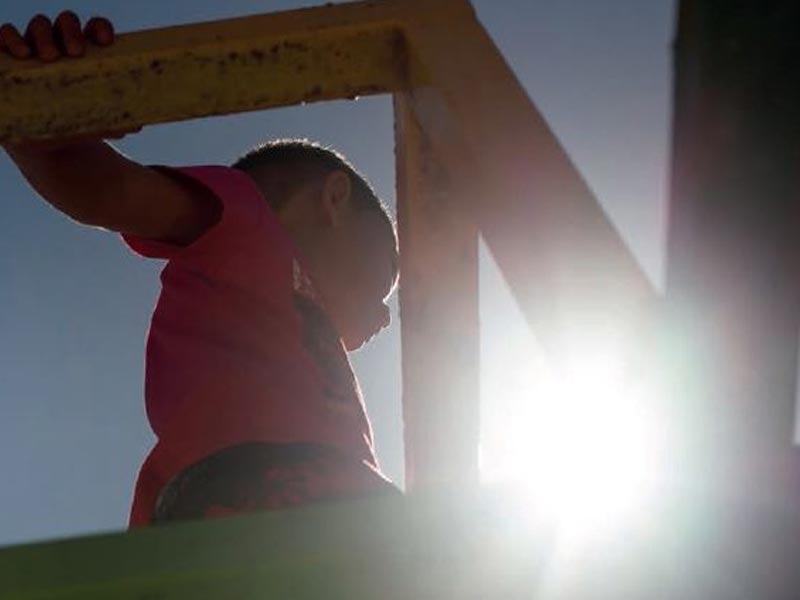Meaningful engagement: Enhancing inclusive participation in UNHCR work
Age, Gender and Diversity Accountability Report 2023
Excitement lights up Mina Raya Camp in Aceh, Indonesia, as Rohingya refugee children enthusiastically join a class led by a volunteer teacher. © UNHCR/Amanda Jufrian
“We want change led by displaced and stateless persons…. We implore you to see us first and foremost as human beings with unique identities, needs, and diverse backgrounds and then work together to develop a range of tailored approaches as opposed to a one-size-fits-all strategy.”
(excerpt from the Joint Refugee Statement at the GRF 2023)
What Were Major Achievements for AGD-related Work in 2023?
The Age, Gender and Diversity (AGD) Accountability Report 2023 presents the efforts made across UNHCR to operationalize the UNHCR Policy on Age, Gender and Diversity and its core actions. It provides a global analysis and examples of AGD-inclusive programming, accountability to affected people (AAP) and gender equality and includes reference to the central role played by grassroots and community-based organizations to ensure that no one is left behind.
KEY ACHIEVEMENTS IN 2023
AGD Inclusive Programming
74 per cent of countries reported having collected official population statistics disaggregated by age, sex and nationality.
Of the 47 million forcibly displaced and stateless children in 2023, 7 million accessed protection services from UNHCR and its partners (8.4 million in 2022).
72 per cent of operations incorporated disability inclusion into their programming (68 per cent in 2022).
63 per cent of operations reported having implemented activities incorporating the needs of LGBTIQ+ persons (40 per cent in 2022).
PARTICIPATION AND INCLUSION
64 per cent (25 out of 39) of reporting operations indicated that they provided extensive support for the participation of refugees and asylum-seekers across various programme phases. 71 per cent (10 out of 14) reported providing extensive support for the participation of internally displaced persons throughout various programme phases.
76 country operations reported having conducted participatory assessments with groups of diverse age, gender and characteristics to inform programming and interventions (72 country operations in 2022).
COMMUNICATION AND TRANSPARENCY
136 active HELP websites in 32 languages reached 13 million people (104 HELP websites in 2022).
FEEDBACK AND RESPONSE
67 per cent of country operations reported to have multichannel FRMs in place, based on consultations with communities (in line with 2022).
ORGANIZATIONAL LEARNING AND ADAPTATION
UNHCR used post-distribution monitoring to assess the impact of Cash-Based Interventions (CBIs) on more than 31,000 interviewed households in 73 countries (some 28,000 households in 2022).
WOMEN AND GIRLS’ PARTICIPATION AND INCLUSION
40 per cent of reporting country operations indicated that at least 50 per cent of existing leadership and management positions were held by women.
21 per cent of UNHCR-funded partnerships identified themselves as women-led organizations.
INDIVIDUAL REGISTRATION AND DOCUMENTATION
Women and girls represented 54 per cent of the 2,570,000 new individuals registered in proGres and issued with individual documentation (58 per cent in 2022).
EQUAL ACCESS TO AND CONTROL OVER ASSISTANCE
54 per cent of the 7.3 million recipients of cash assistance were women
(51 per cent in 2022).
EQUAL ACCESS TO LIVELIHOODS, HEALTH AND EDUCATION
Of the more than 9.2 million health consultations conducted, 58 per cent were with women and girls (57 per cent in 2022).
53 per cent of the participants in livelihood and economic interventions were women.
42 per cent of DAFI scholarship recipients were women (in line with 2022).
GENDER-BASED VIOLENCE PREVENTION AND RESPONSE SERVICES
72 per cent of 122 UNHCR country operations had GBV services available for survivors and those at risk of experiencing GBV (in line with 2022).
AGD-Inclusive Programming
In 2023, UNHCR enhanced its use of disaggregated data by age, sex, and nationality, with 74 per cent of 179 countries gathering this data for at least one population group, and 31 per cent gathering it for all groups of populations that UNHCR protects and/or assists. The COMPASS result management system supported AGD inclusion efforts, with 81 operations using the gender marker and 70 operations using the disability marker. Disability inclusion was integrated into 72 per cent of country operations, while 63 per cent of operations reported activities that address the needs of LGBTIQ+ persons, increasing from 2022. Additionally, 76 per cent of countries provided child protection services, and 31 incorporated youth engagement in their 2024 strategies.
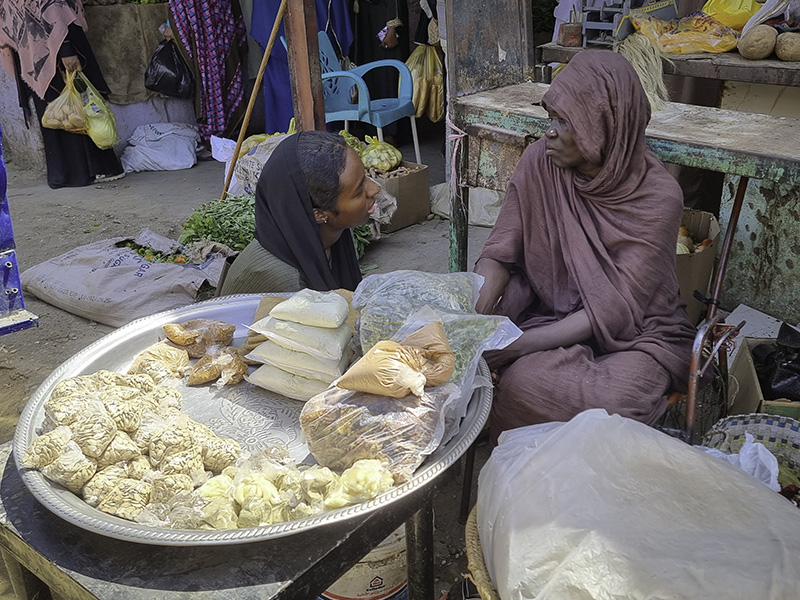
Sudan. Razan, a UNHCR volunteer in Wadi Halfa. UNHCR is conducting a market assessment with support of volunteers. © UNHCR
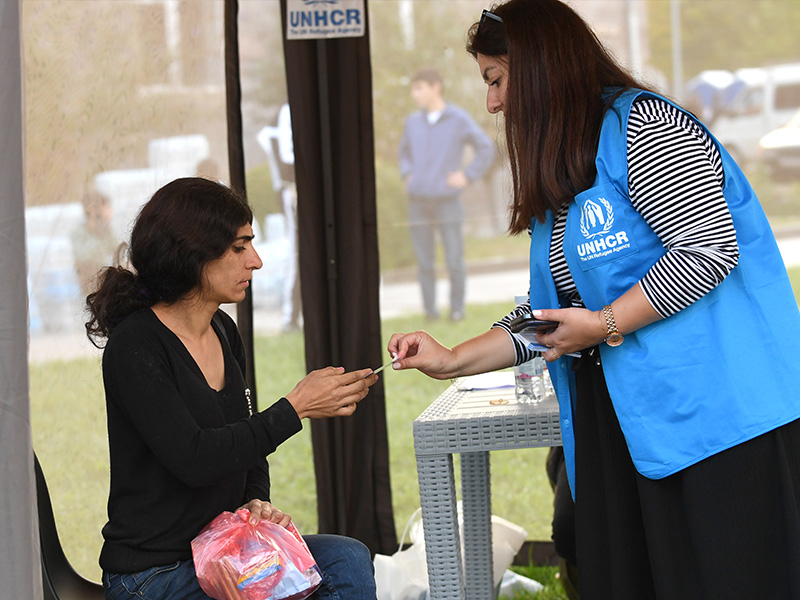
Armenia. Refugees arrive in Armenian border town. Arevig, UNHCR staff member, hands over a UNHCR leaflet with Hotline information and provides counseling to Anna, 34, who arrived in Armenia with her little son, Erik, 3 on 29 September. © UNHCR/Karen Minasyan
Accountability to Affected People
In 2023, UNHCR strengthened participation and inclusion efforts, with 64 per cent of country operations extensively supporting refugee participation in programming, and 76 countries conducting participatory assessments with forcibly displaced and stateless people of diverse age, gender and other characteristics. Innovative funding mechanisms, like the Refugee-Led Innovation Fund or UNHCR Grant Agreement, provided grants to displaced-led organizations in 35 countries. Communication and transparency efforts expanded significantly, with 136 active UNHCR Help websites reaching 13 million people in 32 languages and digital tools like WhatsApp engaging 75,000 new users across 16 live lines. Feedback mechanisms were in place in 67 per cent of operations, with safe online tools available in 27 countries, and UNHCR helped develop collective feedback standards for the humanitarian sector. Additionally, post-distribution monitoring conducted in 73 countries and reaching more than 32,000 thousand households revealed that cash assistance remained the preferred form of support for displaced households, affirming the “Why not Cash” underpinning approach of the 2022–2026 UNHCR Policy on Cash-Based Interventions.
Gender Equality
In 2023, UNHCR prioritized gender equality and women’s participation through digital inclusion, livelihoods opportunities, and engagement in community structures, with over half of the leadership positions in those structures in 40 per cent of operations held by women. Twenty-one per cent of partnerships funded by UNHCR self-defined as Women-Led Organisations, 7 per cent of which were led by forcibly displaced and stateless women. Women represented 54 per cent of recipients of UNHCR cash assistance, and 58 per cent of health consultations involved women and girls, reflecting increased participation in assistance programs. Fifty-three per cent of recipients of UNHCR and partners’ livelihoods support were women, and 42 per cent of DAFI higher education scholarships went to women. Gender-based violence (GBV) response services were available in 72 per cent of country operations, with 16 operations implementing prevention programs focused on women’s empowerment and violence prevention.
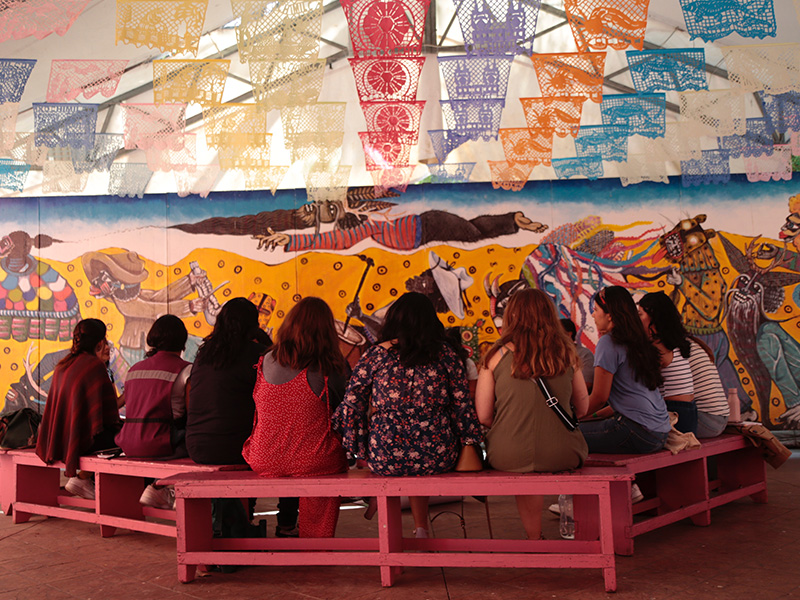
Mexico. Women refugees and local community members participate in a workshop on dignified menstruation. © UNHCR/Ivan Stephens
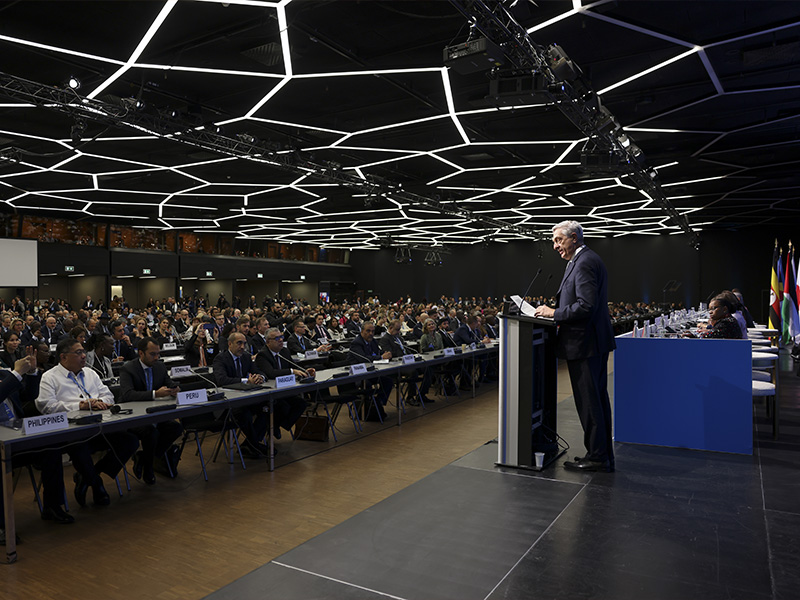
Switzerland. Opening plenary session of the Global Refugee Forum 2023. Filippo Grandi, UN High Commissioner for Refugees, speaks at the opening plenary of the Global Refugee Forum 2023. @ UNHCR
Organizational accountability
UNHCR kept up its efforts to meet the goals of UN system wide accountability frameworks referring to several AGD dimensions, namely the UN-SWAP, UNDIS and the United Nations 2030 Youth Strategy (Youth2030). For UN-SWAP, UNHCR met or exceeded the requirements for 15 of the 17 applicable performance indicators, up from 14 in 2022. For UNDIS and Youth2030, UNHCR accountability framework scores remained similar to those reported in 2022. In 2023, UNHCR’s fourth MOPAN assessment recognized significant progress in delivering gender outcomes and implementing the AGD policy, while emphasizing the need for improved gender-disaggregated data, greater staff awareness of the AGD policy, and more thorough integration of gender into evaluations.
2023 Challenges
Digital solutions increasingly shaped how UNHCR engaged with forcibly displaced and stateless persons, yet a people-centred approach based on direct, face-to-face, interactions remained essential for meaningful participation, particularly for those with limited digital literacy. This approach required presence on the ground, which was often constrained by restricted access and funding limitations. Despite efforts to enhance inclusivity, resource constraints hindered the ability to scale up targeted programming for diverse age, gender and diverse groups and to sustain systematic community engagement initiatives. The complex political landscape and population flows required constant adaptation to ensure that age, gender, and diversity considerations were being applied effectively in a changing environment. The need for strong partnerships with expert stakeholders, continuous leadership commitment to promoting AGD inclusive programming, and staff capacity development remain critical to overcoming these obstacles and ensuring effective AGD policy implementation throughout the organization.
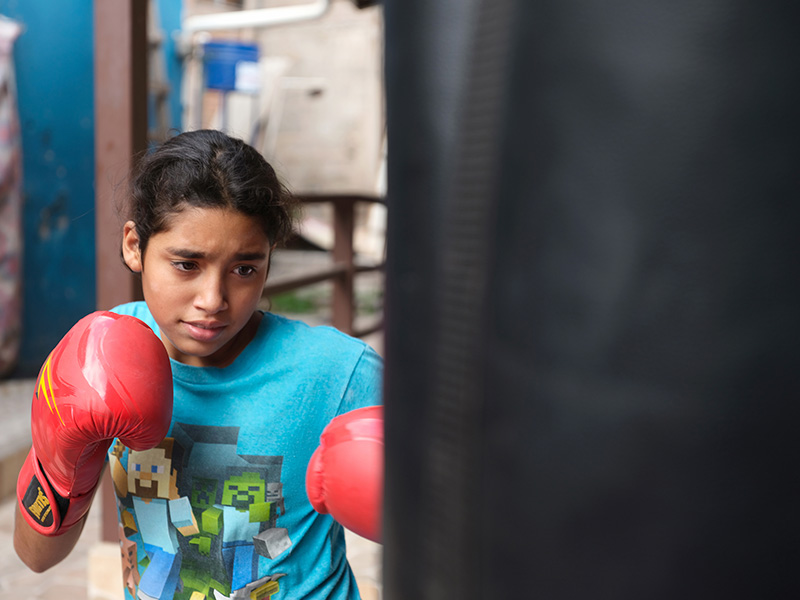
Tegucigalpa, Honduras: Fernanda from the San Miguel community centre boxing club using sports as a girl and women empowerment and violence prevention tool. © UNHCR/Santiago Escobar-Jaramillo
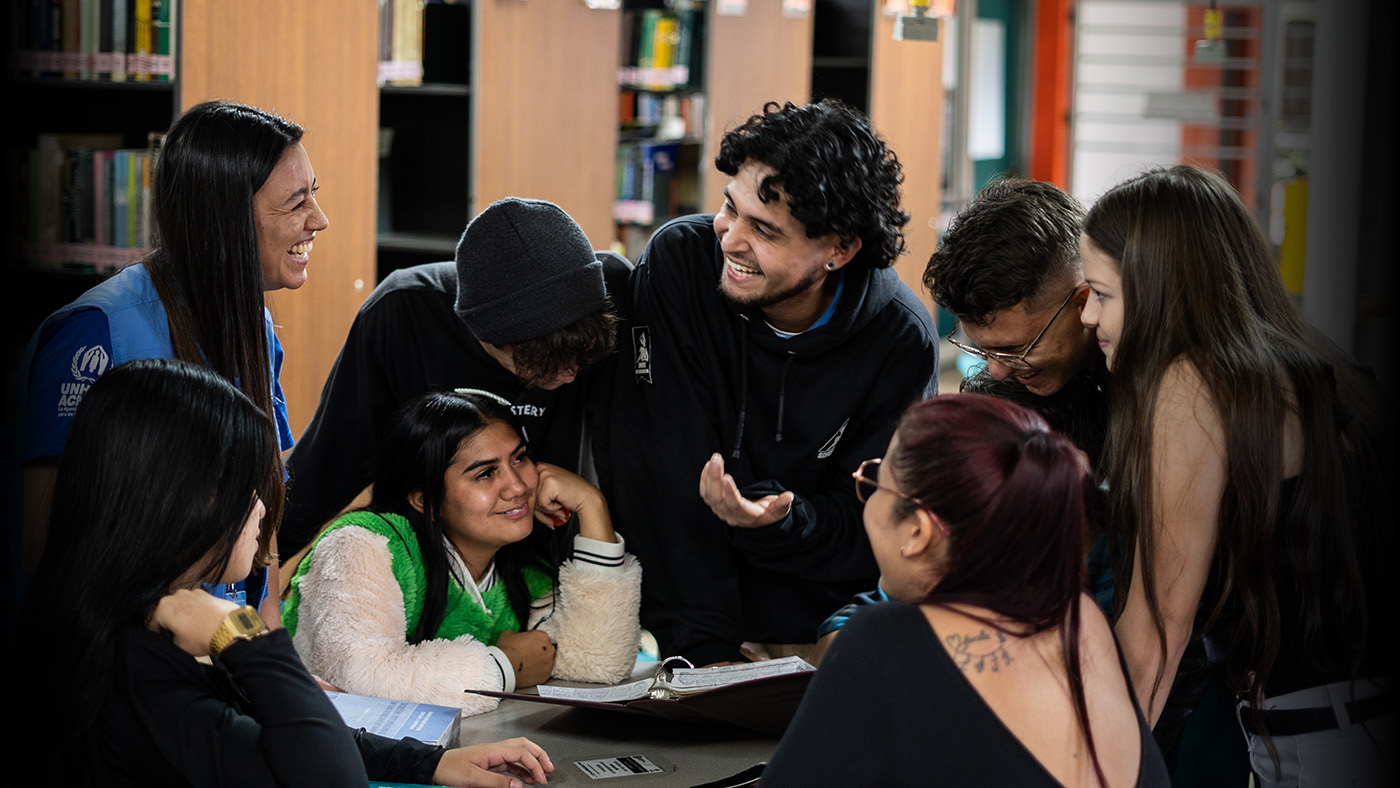
Colombia. First generation of DAFI Scholars in Medellín, Colombia, study at the library and share experiences with UNHCR official. © UNHCR/Catalina Betancur Sánchez
What next?
The following recommendations are drawn from the progress outlined in this report and the key conclusions of the Longitudinal Evaluation of UNHCR’s AGD Policy. They suggest actions that UNHCR could take across various levels to enhance the systematic implementation of its AGD policy in 2024 and beyond.
- Increase staff awareness and uptake of the AGD policy across all levels of the organization, ensuring it is consistently understood, communicated and integrated into all aspects of UNHCR work.
- Enhance the integration of AGD-disaggregated data into UNHCR population statistics, assessments and COMPASS results indicators, to improve analysis, inform programming and decision-making, and enhance external reporting.
- Enhance participation and inclusion, promote innovative ways to enhance the agency of forcibly displaced and stateless persons, and ensure they are able to engage meaningfully in all stages of the operation management cycle.
- Continue to invest in responding to the multiple protection risks and needs of women and girls, and in initiatives that promote gender equality, including through increased cooperation with and support to women-led organizations, in line with UNHCR Strategic Directions, core UNHCR policies and the overall United Nations system-wide commitments of the newly endorsed Gender Equality Acceleration Plan.
Experiences from country operations covered in the 2023 AGD-Report
The AGD Accountability Report 2023 includes examples of implementing UNHCR AGD policy across UNHCR operations, Regional Bureaux, Divisions, and Entities. Read the full report to discover these examples.
